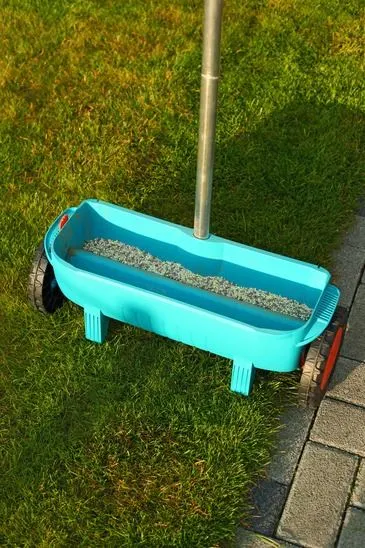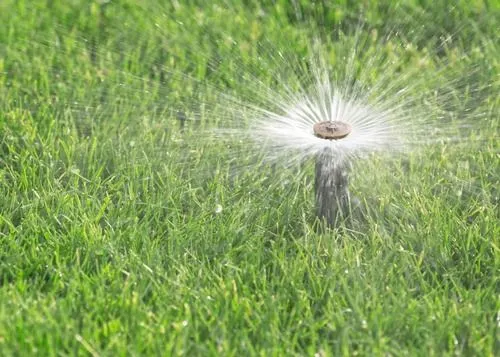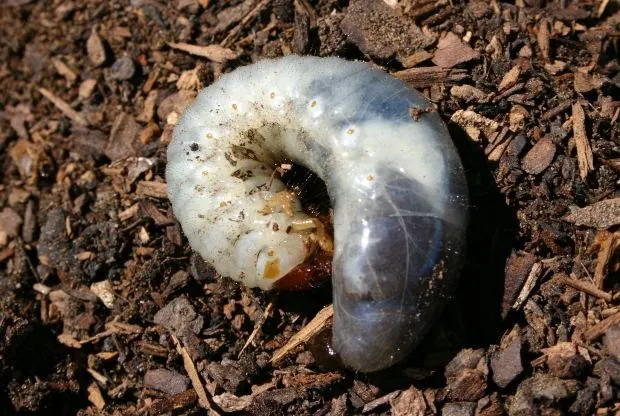When you have a well-maintained lawn, you want to do everything to protect it. Pesticides, weed control, fertilizers and frequent water might seem like a good idea, but it could increase your carbon footprint and cost you money in the long run.
Protect your perfectly manicured lawn with these Eco-friendly solutions:
1. Mulch Your Grass Clippings To Retain Nutrients
For a beautifully healthy lawn, use your old grass clippings from your lawnmower and put them back out in nature. Plants thrive on three basic building blocks:
- Carbon
- Nitrogen
- Phosphorous
These ingredients are found in every fertilizer on the market, but your discarded grass clippings also break down into these essential nutrients.
Mulch them and mix them with regular kitchen compost to create a cost-effective fertilizer that does all the work for you.

2. Test Your Soil Before You Fertilize
Fertilizers contain essential nutrients for your lawn that keep it looking green and healthy, but there are varying amounts of carbon, nitrogen, and phosphorous in every brand.
To choose the fertilizer that’s right for your lawn, pick up a test kit to test your soil.
They are relatively inexpensive, and they tell you the nutrient levels and the pH of your soil, so you can better choose a fertilizer that will balance out any deficiencies you may find.
3. Use Organic Fertilizers
If you decide to choose a fertilizer for your home, choose one that is certified organic. These fertilizers contain all the chemical compounds already found in nature, with very little else from synthetic sources.
The nutrients found in organic fertilizers also help to promote a healthier soil composition, which in turn encourages plant growth for a lush-looking lawn.
They are also safe for pets and children, so you don’t have to worry about dangerous chemicals harming your little ones.

4. Collect Rainwater To Water Your Lawn
Setting out the sprinkler and watering your lawn is a fast way to ensure that your grass gets the moisture it needs, but it can also become a drain on your water bill.
For inexpensive watering straight from Mother Nature, use a rain barrel or other collection device to collect rainwater for watering instead.
It’s a healthier alternative to treated water, and it’s free! Watch the savings trickle back into your wallet while you enjoy a beautiful green lawn.

5. Water Infrequently
Water is what plants crave, but watering too much can drown your grass, leaving it boggy, soggy, and unpleasant.
When just starting out with seeds, you should water every day until the roots take hold, and then you can start watering once a week to prevent choking growth.
Grass is able to withstand times of drought, so don’t worry if you feel you aren’t watering it enough. Remember to watch for rain as well to prevent over-watering.
6. Use Ladybugs for Pest Control
Do you have aphids? These little green bugs can wreak havoc on all of your plants by eating necessary stems and leaves.
An excellent way to protect your precious plants is by introducing an aphid’s biggest fear: the ladybug. Ladybugs are the aphid’s top predator, so having them in your garden is a viable pest control solution.
A great way to attract ladybugs is by planting flowers that attract them on their own.

7. Use Bio-Pesticides Instead of Harsh Chemicals
If having ladybugs in your garden is not a solution that appeals to you, consider using bio-pesticides as an alternative.
Commercial pesticides contain harmful chemicals such as DDT that sink deep into the soil, damaging underground water reservoirs and releasing toxins into the environment.
Bio-pesticides don’t contain harsh chemicals and are safe for you and pets to enjoy without risk.
When we use products and solutions that encourage plant growth without damaging the ecosystem in the process, we are choosing a more sustainable lawn that will continue to look good for months, even years.
Using products like bio-pesticides, natural rainwater, or organic fertilizers all work towards creating a more natural lawn, which in turn lowers our carbon footprint.
For any help with going organic for your lawn, give us a call!



Comments (0)
Thanks for your comment!
Thanks for your feedback! Your comments have been successfully submitted! Please note, all comments require admin approval prior to display.
Error submitting comment!
There is a problem with your comment, please see below and try again.